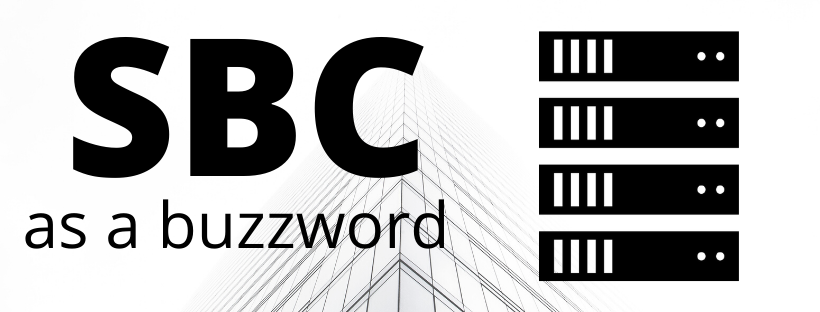When a new client comes for the infrastructure purchase request, they often ask for a SBC. Most of the time what they need is SIP Proxy or Softswitch. The SBC manufacturer companies marketing are so strong and did such a good job, that newcomers into the VoIP business think in SBC terms.
Like all other services, VoIP comes with optional add-on services. One such service is that of an SBC. A session border controller (SBC) has long been a standard necessity sold by large VoIP infrastructure providers. With the advancements in technology and software, one can question if they are really necessary with the multiple ways that VoIP system is achieved. However, given great marketing plans and budgets, providers are measured by their SBC’s and capabilities.
SBCs consist of a SIP back-to-back user agent (B2BUA) and generally an integrated media relay combined with a routing policy engine/business layer, plus some other commonplace features (server-side NAT traversal, DoS protection/security, etc.) packaged into a particular kind of appliance. Discussing VoIP networks strictly in terms of SBCs is like being fixated on chocolate bars in a conversation that is ostensibly about candy.
Stop talking in buzzwords
A lot of jargon exists in the industry. Much of it is incomprehensible to most of the customer base, short of the seasoned network professionals. As a consumer, one should try to understand what is really being sold to them past all of the flashy buzzwords. Complex terms and vague statements are great for sales. Usually a few seconds into a technical presentation from a sales source, the customer has already tuned out and is thinking about the overall overhead involved in the purchase of the service and accessories, an SBC being a de-facto necessity. Because it is an industry “standard”, SBCs are commonly packaged into the deal without much question.
Since they are marketed as a firewall for the VoIP network, there is a standard misconception that they will prevent any attack on the network.
SBCs aren’t just a firewall however, and any seasoned professional would call issue with such an oversimplification. SBC can and have many more functions. With this understanding, it is easy to see why average customers get caught up in the lingo of the sales pitch.
Overlooking the mountains of money so often spent by buying, licensing and supporting SBCs where they are profoundly unnecessary, and only very occasionally, overlooking them where they are in fact necessary, this is an anti-pattern because of the sheer amount of communication and time spent when people talk past each other, typically where one side lacks the imagination, expertise, or agility to tune out a certain amount of brainwashing by the SBC industry and think in more fundamental SIP architecture concepts. A lot of cognitive bandwidth is sucked up in meetings and on conference calls trying to unpack business requirements that are slathered in the vernacular of SBC features and related marketing gibberish when all one really needs to talk about is SIP endpoints, and perhaps proxies and softswitches.
As a consumer, it is important to fully understand the needs of a particular system based on company size and communication needs. Getting past corporate jargon, while daunting, can be accomplished with a little bit of research.

dear Villius
well described to those who messed up between soft switch and sbs
Thanks, Vidianand!